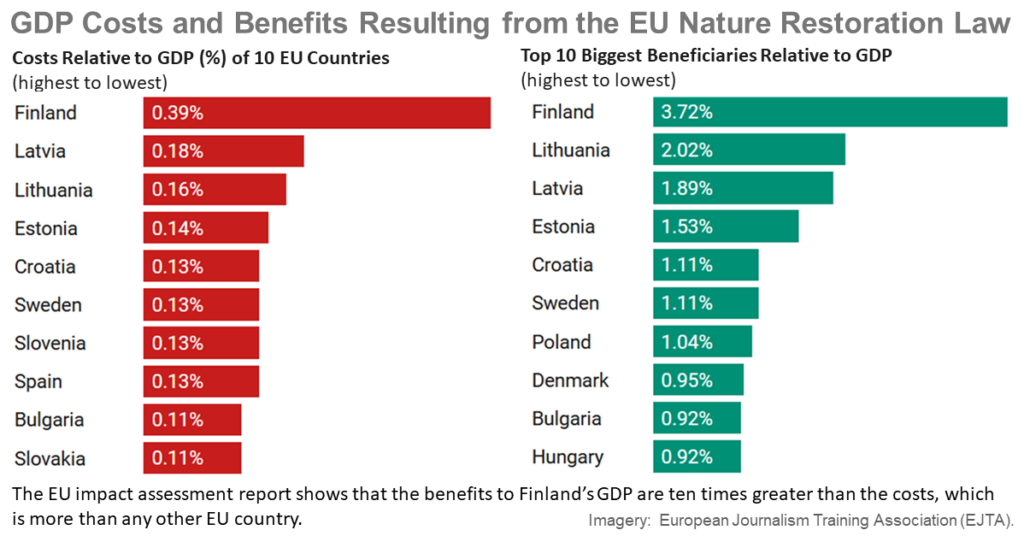Gregory Autin | June 18, 2024
The EU Nature Restoration Law cost-benefit ratio of 1:12
The EU Council formally adopted the Nature Restoration Law (NRL), a far-reaching law to restore ecosystems across the EU, on 17 June.
Up to 80% of habitat types in the EU are in poor condition, up to 70% of soils in the EU are unhealthy, and the overall environment is deteriorating rapidly, costing farmers more than $1 billion per year in agricultural productivity. While European farmers are concerned that the law is costly, the law will benefit them and society overall socially, ecologically and economically.
The cost-effectiveness of nature restoration is well-known, well documented and well-understood. However, the controversial law, which was first presented by the European Commission in June 2022, has since met with fierce opposition from the centre-right, far-right and conservative groups in the European Parliament, mainly due to its economic cost.
Restoring nature is expected to significantly improve agricultural conditions and food security by increasing crop production. Other positive contributions of NRL to society and the environment include human health, resilience to extreme weather events and carbon sequestration, which have been repeatedly called for by scientists, civil society and businesses.
In the impact assessment accompanying its proposal for a Regulation of the European Parliament and of the Council on the restoration of natural habitats, the European Commission estimates the main benefits of ecosystem restoration at €1860 billion, while the costs are put at €154 billion – less than a tenth of the benefits. Furthermore, the benefits of nature restoration projects will be realized if only 10% of Special Protection Areas (designated under the Habitats Directive) are restored.
Economists, scientists, and politicians who are in favor of the law point to a cost-benefit ratio of 1:12. Countless studies show that restoring nature boosts and sustains economic activity and is a win-win for everyone – farmers and the rest of society.


